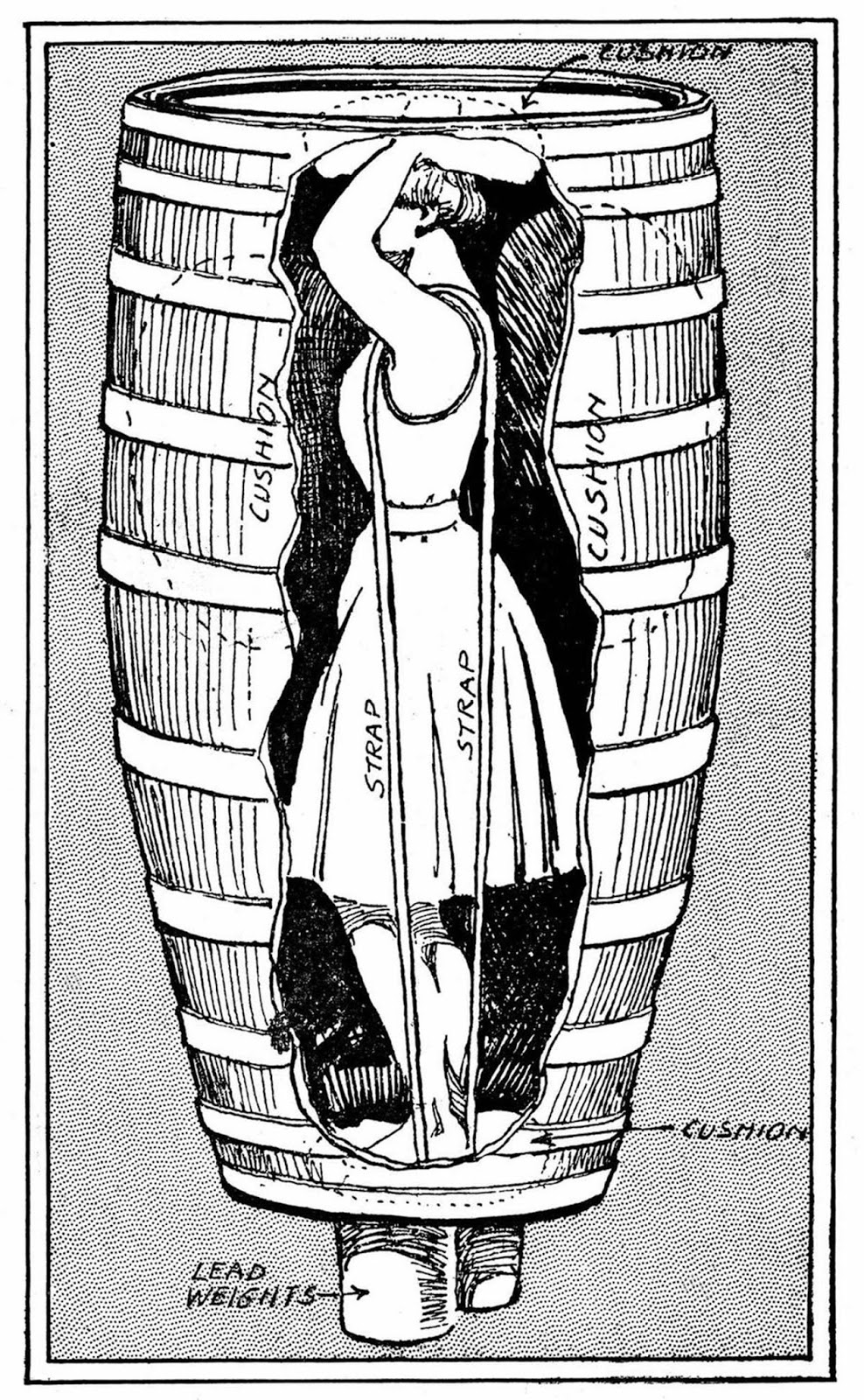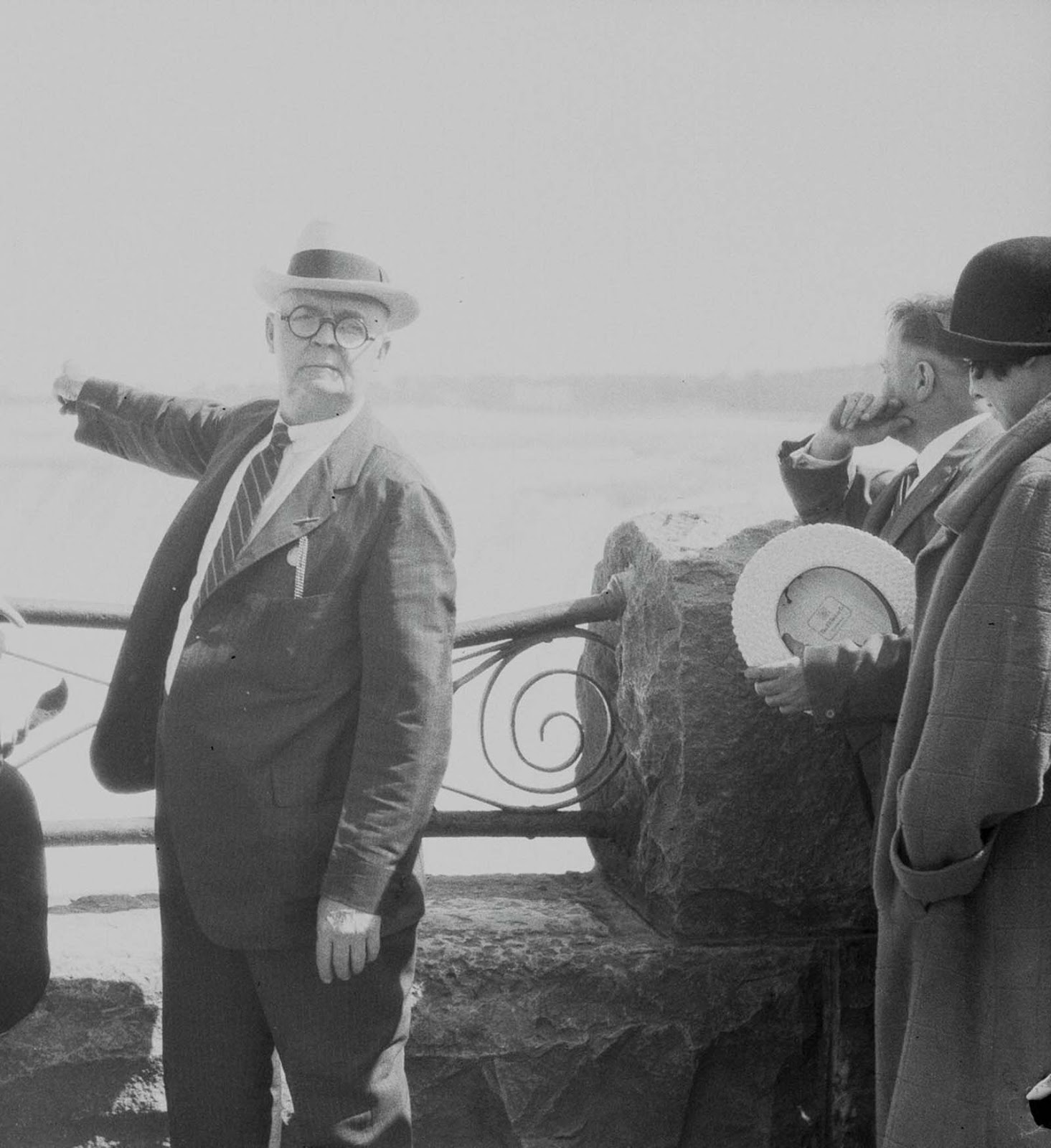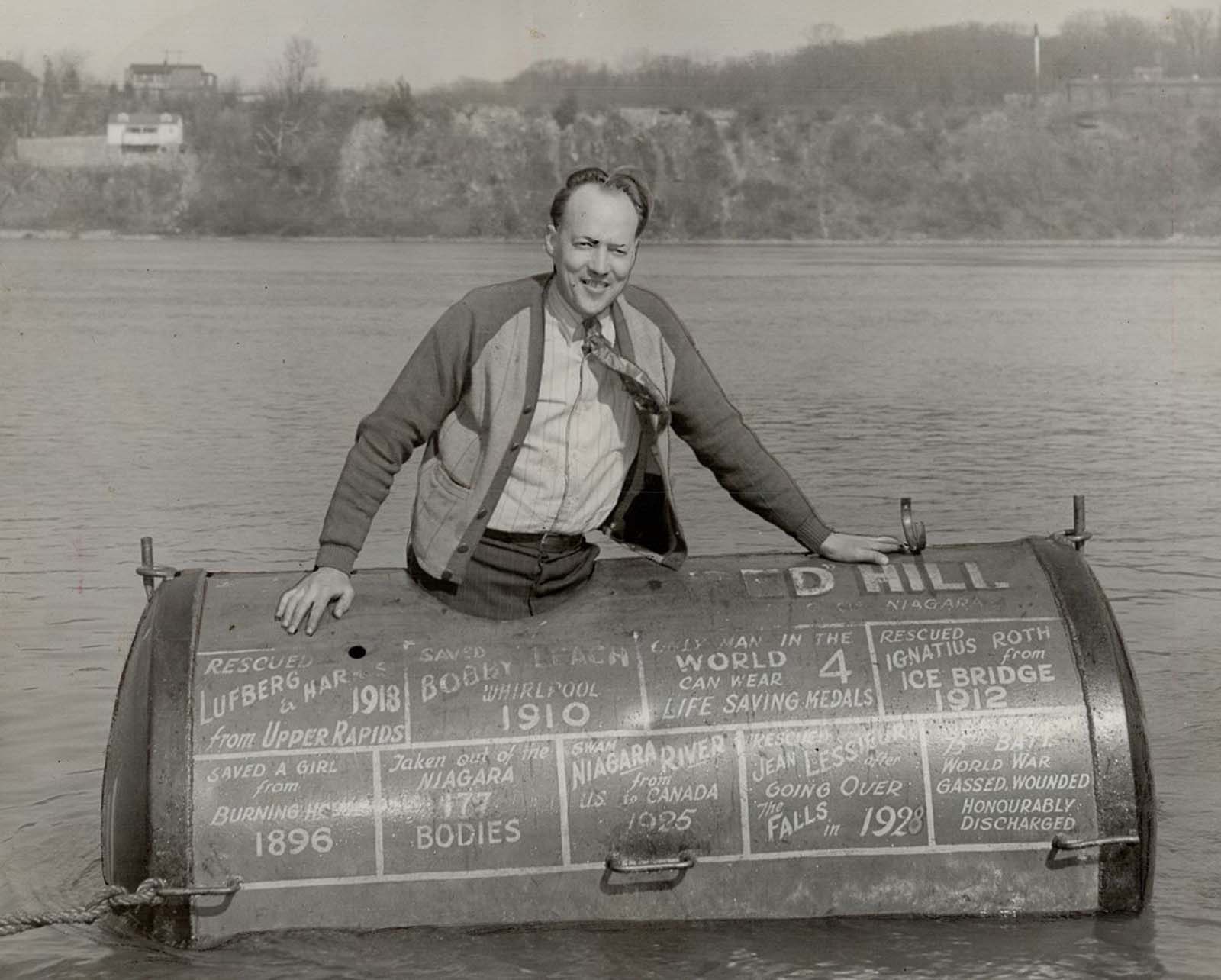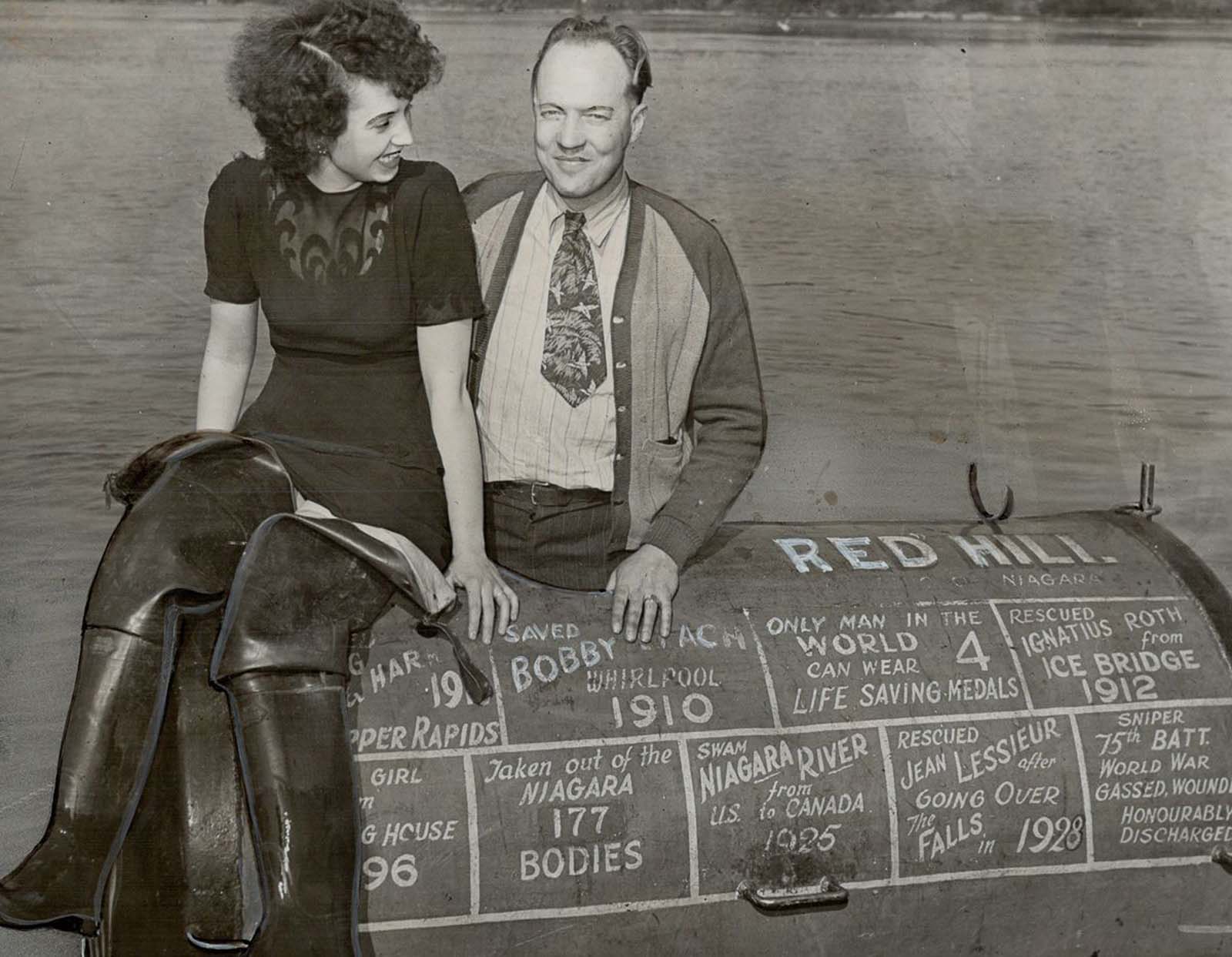It is said that Niagara Falls has a mystic allure that gives some people the uncontrollable urge to jump in and blend into the swirling waters.
Officials say that they recover an average of 20 people per year who chose Niagara Falls as the place to end their lives. But there are those who choose to go over Niagara Falls in the name of adventure, not suicide.
The first person to ride over the falls and live to tell the tale was not a famous daredevil or performer, but a widowed teacher named Annie Edson Taylor. Taylor was struggling financially when she came up with the perfect attention-getting stunt: She would go over Niagara Falls in a barrel.
She used an oaken barrel with a crudely cushioned interior, which she tested by sending it over the falls with a cat stuffed inside. The traumatized feline survived the plunge, so on Oct. 24, 1901 — her 63rd birthday — Taylor climbed inside the barrel and was set adrift from a rowboat upstream.
Less than twenty minutes later, she was recovered from the bottom of the falls, bleeding from the head but otherwise uninjured. She later recalled, “If it was with my dying breath, I would caution anyone against attempting the feat … I would sooner walk up to the mouth of a cannon, knowing it was going to blow me to pieces than make another trip over the fall.”

Annie Edson Taylor is helped from the river after becoming the first person to survive a trip over the falls. 1901.
A decade after Taylor’s pioneering plunge, Bobby Leach became the first man to survive the falls in a custom metal barrel, shattering his kneecaps and jaw in the process.
Leach managed to parlay his title of “the first man to go over Niagara Falls” into a successful touring career before slipping on an orange peel and dying in 1926.
In 1920, English barber Charles Stephens made history as the first person to die attempting to go over the falls in a barrel, when the anvil he packed as ballast burst through the bottom of the barrel, taking him with it.
Only his right arm in its safety harness was ever recovered. Canadian-American daredevil Jean Lussier decided against using a barrel, and in 1928 survived the falls in a six-foot rubber-and-steel ball, which he later sold to tourists piece by piece.
In 1930, Greek immigrant George A. Stathakis decided to take a barrel over the falls, hoping to raise money to publish his books on metaphysics. He constructed a hulking ten-foot barrel that weighed nearly a ton — a surely indestructible vehicle.
On the day of his plunge, Stathakis brought along his more than 100-year-old pet turtle Sonny Boy as a good luck charm, and to tell his story if he didn’t make it.

Anne Edson Taylor’s barrel design. 1901.
The behemoth of a barrel survived the plunge but was trapped behind a curtain of water at the base of the falls for 18 hours before it could be extricated. When the barrel was finally freed, Stathakis had died of suffocation. Sonny Boy the turtle survived.
An estimated 5,000 bodies were found at the foot of the falls between 1850 and 2011, and an estimated 40 people are killed each year when they are swept over the falls—most of which are suicides.
Other figures suggest that the number of suicides is between 20 and 30, many of which are not publicized by officials. The majority of jumps take place from the Canadian Falls, which account for between 55% and 70% of suicides.
The mortality rate for the daredevil attempts over the falls is approximately 25%. Did you know that in 1969 Niagara Falls was de-watered? Take a look at these pictures.

A satirical Puck illustration imagines the future of Niagara Falls. 1906.

A photo composite of Bobby Leach and his barrel in front of the falls. 1911.

Bobby Leach, the second person to survive a trip over the falls, with the barrel he used to do it. 1911.

Bobby Leach points to where he went over the falls in 1911. 1925.

George Stathakis poses on his barrel before taking the plunge. 1930.

The body of George Stathakis is recovered from his one-ton barrel after going over the falls and becoming trapped for more than 18 hours. 1930.

Red Hill Jr. with his father’s 780-pound steel barrel, which he took through the rapids below the falls. 1945.

Red Hill Jr. 1945.

Steven Trotter waves one of the oxygen bottles he took with him over the falls. 1985.
(Photo credit: Library of Congress).



